Table of Contents
- 1. What’s So Great About Going Digital Anyway? (And What Problems Does It Solve?)
- 1.1 Break Free from Location Limits
- 1.2 Slash Your Operational Costs
- 1.3 Teach More Students, Easily
- 1.4 Offer Flexibility Students Love
- 1.5 Get Smart with Data
- 1.6 Automate the Tedious Stuff
- 1.7 Reduce Reliance on Just Your Faculty
- 1.8 Tailor Learning, Not Just One-Size-Fits-All
- 1.9 Unlock New Ways to Make Money
- 2. Building Your Digital Superstructure: The Step-by-Step Plan
- 3. Marketing Without Breaking the Bank: Creative Ways to Attract Students and Boost Profits
- 3.1. Get Found Online (SEO)
- 3.2. Be Where Your Students Are (Social Media & Content)
- 3.3. Build Relationships (Email & WhatsApp Marketing)
- 3.4. Let Students Sell for You (Referral Programs)
- 3.5. Give a Sneak Peek (Free Trials)
- 3.6. Sell Bite-Sized Goodies (Upsell Micro-Courses)
- 3.7. Build a Tribe (Community-Based Learning)
- 3.8. Bundle Courses for Value
- 3.9. Add Value with Live Sessions
- 3.10. Offer Recognition (Certifications & Badges)
- 3.11. Host Webinars & Workshops
- 3.12. Think Subscriptions
- 3.13. Collaborate to Expand Reach
- 3.14. License Your Content (White-Label Model)
- 3.15. Wrap up to this phase: Marketing Smart = Growing Smart
- 4. Overcoming Challenges in Going Digital: What You Need to Know
Hey there! The world of education is changing fast, and coaching institutes are right at the heart of this transformation. Moving from a traditional classroom setup to taking your coaching institute online isn’t just an option anymore; it’s a powerful way to seriously increase your revenue and reach students far and wide.
Think of it as unlocking a whole new level for your coaching centre. This guide is your roadmap to making that happen smoothly and profitably.
1. What’s So Great About Going Digital Anyway? (And What Problems Does It Solve?)
Let’s be real—running a coaching institute comes with its own set of daily challenges. From managing physical space and faculty to dealing with inconsistent attendance and rising operational costs, it’s a lot to handle.
But here’s the good news: the digital space offers some fantastic perks that traditional setups just can’t match. In fact, many of the headaches you’re facing right now can be solved—or at least drastically reduced—just by making the digital leap.
Let’s break it down.
1.1 Break Free from Location Limits
Physical classrooms mean you’re stuck in one place. Students have to live nearby or travel to your centre. This naturally limits your reach.
Going digital removes that barrier completely.
You can now tap into a global pool of potential students, making location irrelevant. Imagine being a popular coaching institute in Kota and teaching students in Bihar or even Dubai—without setting up a single new branch. That’s the power of digital.
1.2 Slash Your Operational Costs
Running a physical space comes with a heavy monthly bill—rent, electricity, printing tonnes of notes, admin staff… it adds up fast.
By moving online, you can minimise these expenses significantly:
- Replace printed notes with PDFs, e-books, or mobile-friendly materials.
- Conduct classes via Zoom or LMS platforms and save on space-related costs.
Real-world example? One centre reportedly saved ₹5 lakh a year just on rent by moving 60% of its classes online.
1.3 Teach More Students, Easily
The traditional model limits you to the number of seats in your classroom. But online platforms are infinitely scalable.
You can easily handle a larger number of students without increasing your infrastructure. Whether it’s 100 or 1,000 students—digital tools help you manage them all effectively, and often without needing more teachers.
1.4 Offer Flexibility Students Love
Let’s face it—every student learns differently and has a different routine.
Going digital gives them the freedom to:
- Learn at their own pace
- Study on their own schedule
- Revisit recorded lectures whenever they want
Some even prefer watching a difficult topic—like “Organic Chemistry”—at 2x speed before an exam!
You can host live classes using Zoom, Google Meet, or even integrate sessions into your Learning Management System (LMS). Recording these sessions and offering playback access is a game-changer.
1.5 Get Smart with Data
Digital platforms offer you something traditional classrooms can’t—actionable insights.
You can track:
- How many students attend regularly
- Which topics they’re struggling with
- How well they perform in quizzes and assignments
Automated reports can even flag low performers so you can offer personalised support and boost their results.
1.6 Automate the Tedious Stuff
Tired of manually tracking attendance, fees, and student performance?
Digital tools do it for you.
- Use LMS dashboards or Google Sheets with automation
- Send automatic fee reminders
- Conduct online quizzes with instant results
All of this frees up your time so you can focus on teaching and scaling.
“Want a simplified tech stack that does all this?
Grab my free checklist: Tools to Automate Your Coaching Institute Digitally – No tech skills needed!”
1.7 Reduce Reliance on Just Your Faculty
Traditionally, scaling up means hiring more teachers. But that also means increasing your payroll.
Digital allows you to pre-record foundational topics and reuse them year after year.
Imagine this:
A teacher records “Calculus Fundamentals” once and saves over 100 hours annually by not having to repeat the same lessons.
You can even use AI tools like ChatGPT for doubt solving, or Canva to create professional-quality lesson visuals.
1.8 Tailor Learning, Not Just One-Size-Fits-All
In a traditional group class, fast learners get bored, and slow learners get left behind.
Online learning changes the game. You can:
- Create modular courses for different levels
- Use adaptive learning tools that recommend content based on quiz performance
- Let students skip what they already know and spend more time on weak areas
It’s a personalised learning journey—something that’s impossible to manage in large physical classrooms.
1.9 Unlock New Ways to Make Money
Moving online doesn’t just improve teaching and student experience—it also unlocks new revenue streams.
From paid trial modules to downloadable revision packs, recorded crash courses, and premium live doubt sessions, the possibilities are endless.
And the best part? We’ll be diving deeper into those creative monetization strategies in the next section!
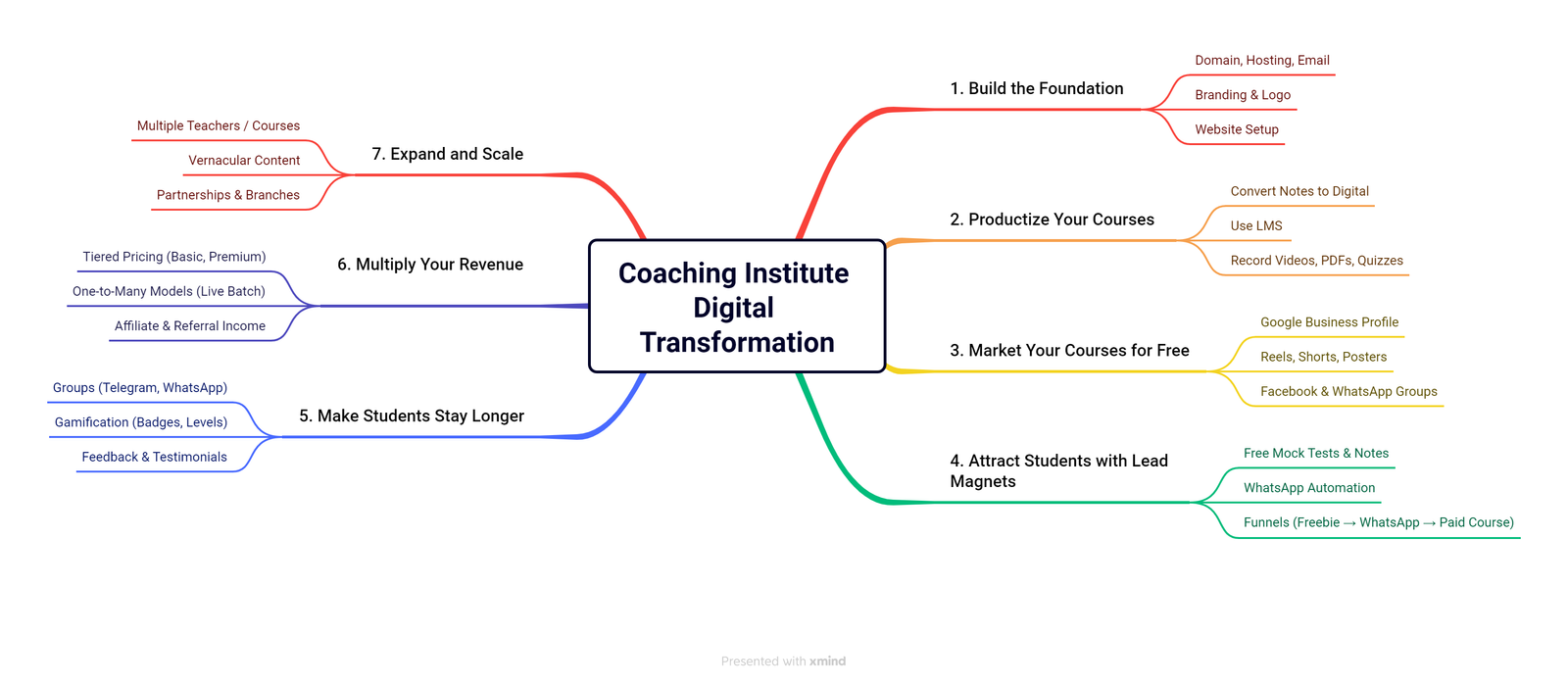
2. Building Your Digital Superstructure: The Step-by-Step Plan
Alright, you’re convinced—going digital is the way forward. But the real question is: how do you actually do it?
The good news is, transitioning your coaching institute online isn’t rocket science. All you need is a clear roadmap and the right tools. This section lays out a practical, step-by-step plan to help you build your digital superstructure—the foundation of your scalable, profitable online coaching model.
Let’s get started.
2.1 Know Your Audience & Market
Before diving into tech or content, know who you’re teaching.
Ask yourself:
- Who is your ideal online student?
- What is their age group?
- What do they like to do online?
- How do they prefer to learn—videos, quizzes, mobile content?
Also, spy on your competitors. See what other online coaching platforms are doing. Are they offering live sessions? Are they promoting trial modules?
And don’t guess the demand—validate it! Use tools like Google Trends, Ubersuggest, or AnswerThePublic to find what students are actively searching for, such as:
- “online NEET coaching”
- “best digital marketing courses online”
This insight will shape everything else in your strategy.
2.2 Build a Solid Online Foundation
This is where the real setup begins. Think of this as building your virtual classroom, office, and campus—all in one.
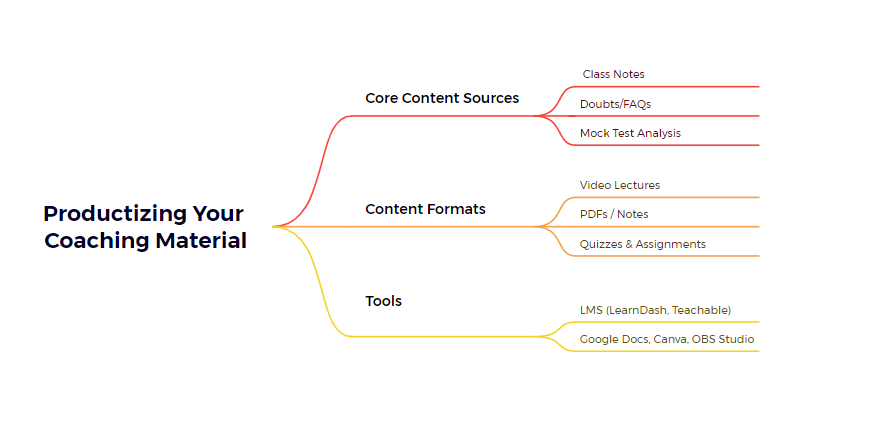
2.2.1 Choose the Right LMS
Your Learning Management System (LMS) is the backbone of your online academy. It’s where students watch your content, take tests, submit assignments, and track progress.
Some popular options include:
- Moodle (Open-source and customizable)
- Teachable and Thinkific (Great for selling courses)
- Incorporating into your Website (Ideal if you have your own website)
Choose one that fits your budget and teaching style. Make sure it supports:
- Video hosting
- Live class integration
- Interactive quizzes and assignments
- Student progress tracking
- Mobile-friendly access
“Not sure which LMS or video tools to choose?
Download my FREE guide: The Ultimate Digital Coaching Toolkit : Compare the Top Course Creation Platforms & Choose What Fits You Best.”
2.2.2 Create Killer Content
Once your platform is ready, content is king.
Your online material needs to be clear, engaging, and mobile-friendly. Here’s how to stand out:
- Use professional lighting and audio for your video lectures
- Include interactive elements like quizzes, polls, and worksheets
- Organise lessons into clean, modular sections so students can track progress
- Provide downloadable PDFs or summaries
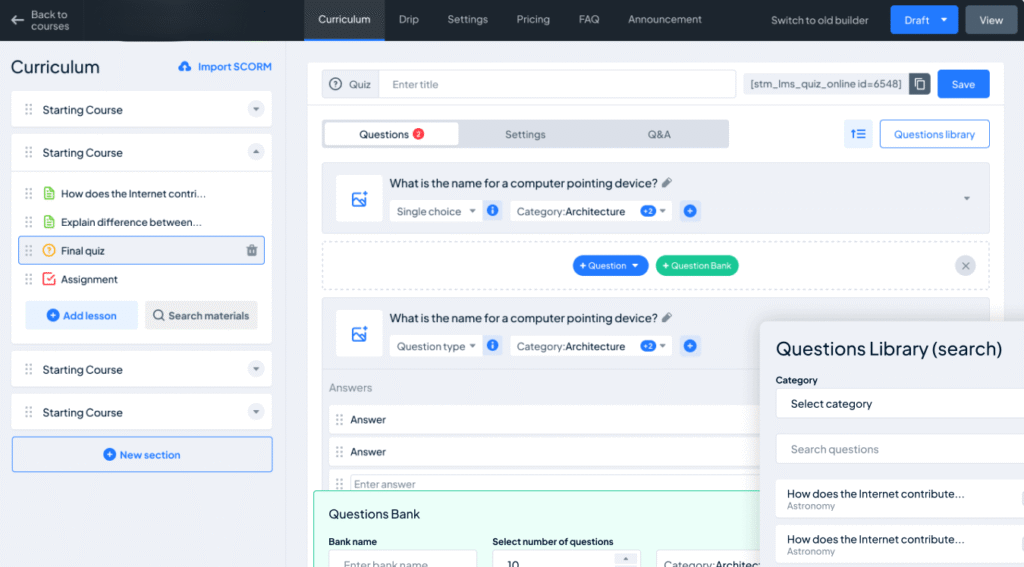
And don’t forget—test your content on mobile devices to ensure smooth access.
2.2.3 Optimise Your Website
Your website is your digital storefront. It’s the first impression for any potential student.
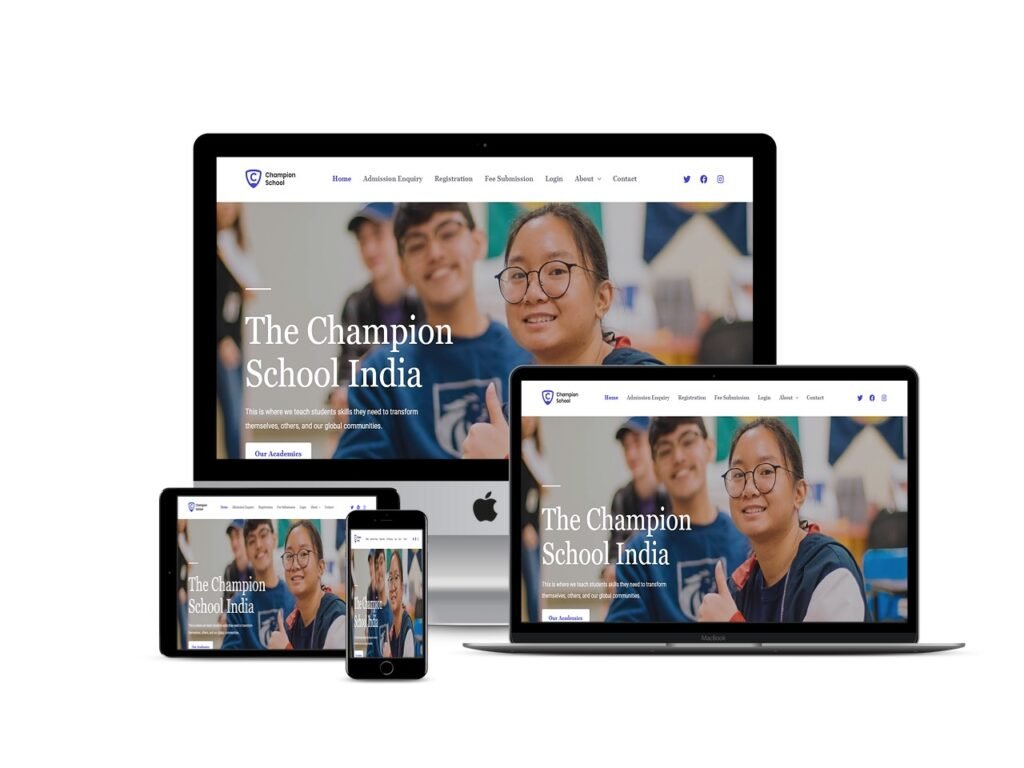
Make sure it’s:
- Fast and mobile-responsive
- Easy to navigate
- SEO-optimised with keywords like “online coaching for JEE” or “NEET crash course”
- Designed with clear CTAs like “Enroll Now”, “Start Free Trial”, or “Get Course Details”
Think of it as your silent salesperson—working 24/7 to bring in leads.
2.3 Seamless Payments & Enrollment
If someone’s ready to enroll, don’t let complexity lose you a sale. The process should be simple, quick, and smooth.
2.3.1 Offer Easy Online Payments
Integrate your site or LMS with payment gateways like:
- Razorpay (great for India – supports UPI, wallets, etc.)
- Stripe or PayPal (for international payments)
Make sure students can pay using cards, UPI, wallets, or even EMI options.
2.3.2 Simplify Enrollment
The fewer steps, the better. Use one-page forms. Avoid unnecessary details. And always test the user flow yourself.
2.3.3 Automate Communications
Make your students feel welcome immediately. Set up automatic:
- Payment confirmations
- Welcome emails
- Login instructions or “How to get started” videos
This builds trust and reduces support queries.
2.4 Empower Your Team
Your teachers and support staff are a vital part of your online journey. To succeed digitally, they need training, tools, and support.
2.4.1 Provide Thorough Training
Help your team become confident digital educators. Teach them:
- How to use the LMS effectively
- Engage students in a virtual setting
- How to manage live classes, chats, and assignments
- How to use tools like Zoom, Google Meet, Kahoot, and Canva
You can even create short internal tutorials to make it easier for them to refer back when needed.
2.4.2 Foster a Community
Encourage collaboration and knowledge-sharing among your faculty. Create a private Telegram or WhatsApp group where instructors can:
- Share what’s working for them
- Ask questions
- Suggest tools or strategies
This builds morale and creates a culture of learning.
2.4.3 Equip Them Well
Even the best teacher needs the right tools. Make sure your team has:
- Reliable internet
- Quality microphones
- Clear webcams
- A distraction-free workspace
Investing in their setup means better quality content and a more professional experience for students.
2.5 Wrapping Up This Phase
At this point, you’ve laid down a solid digital foundation—knowing your market, choosing the right tools, preparing your content, simplifying payments, and empowering your team.
But remember, this is just the structure.
In the next phase, we’ll explore how to attract students, grow your audience organically, and monetize creatively without relying heavily on paid ads.
Stay tuned—because the best is yet to come.
3. Marketing Without Breaking the Bank: Creative Ways to Attract Students and Boost Profits
So, you’ve built your digital classroom, chosen the right tools, and created awesome course content. Now comes the next big question: How do you get students to actually sign up—without spending a fortune on advertising?
The truth is, while platforms like Google Ads and Facebook Ads can help, they’re not your only option. In fact, there are many low-cost, high-impact strategies you can use to attract students and boost revenue creatively.
Let’s explore powerful marketing techniques and income boosters you can start using today—even if you’re on a tight budget.
3.1. Get Found Online (SEO)
One of the most powerful ways to bring students to your coaching institute—without running ads—is through Search Engine Optimization (SEO).
3.1.1 How it works:
- Make sure your website and content (like blog posts and course pages) are search engine friendly.
- Use relevant keywords that your students are actually typing into Google.
- Focus on long-tail keywords like:
- “best online JEE coaching for droppers in Bangalore”
- “free NEET crash course PDF”
- “how to prepare for CUET without coaching”
- “best online JEE coaching for droppers in Bangalore”
The more useful and keyword-rich your content is, the higher it will rank—and the more organic traffic (and signups) you’ll get.
If you’re also looking to stand out as an educator in the digital world, don’t miss our detailed guide on How to Build a Personal Brand as an Educator. It’s the perfect next step once your online institute is up and running.
3.2. Be Where Your Students Are (Social Media & Content)
Your students are already spending hours a day on platforms like Instagram, YouTube, WhatsApp, and even LinkedIn (for skill-based and professional courses). So show up there—not just to promote, but to provide value.
3.2.1 What to do:
- Share helpful content: study tips, doubt-clearing reels, behind-the-scenes, or success stories.
- Publish short videos, blog posts, free webinars, or even downloadable ebooks.
- Use content marketing to position yourself as a trusted expert.
This builds familiarity, authority, and trust—three key ingredients to boost enrollment.
3.3. Build Relationships (Email & WhatsApp Marketing)
Don’t just collect leads—nurture them. Once you’ve collected emails or phone numbers (with consent), use them wisely.
3.3.1 How to nurture:
- Start a WhatsApp broadcast list to share free study tips or class reminders.
- Use email automation tools to send:
- Welcome sequences
- Mini-courses (like “5 Days to Crack Trigonometry”)
- Progress updates and special offers
- Welcome sequences
Real example: A coaching center ran a 5-day email course and converted 20% of readers into paid students. That’s high-conversion, low-cost marketing at its best.
3.4. Let Students Sell for You (Referral Programs)
There’s no better marketing than happy students sharing your course with friends. Referral programs can be incredibly effective—and cheap.
3.4.1 Set it up:
- Offer rewards like 10% cashback, bonus materials, or free access to new chapters.
- Track referrals through Google Forms, unique referral codes, or simple WhatsApp tracking.
Imagine this: 50 students refer 2 friends each = 100 new enrollments without spending a rupee on ads!
3.5. Give a Sneak Peek (Free Trials)
You don’t need to sell the entire course upfront. Give students a taste of your teaching quality and build trust first.
3.5.1 What to offer:
- Free access to Chapter 1 of your course
- A quiz or mini-assessment
- A limited-time discount after completing the free trial
Example: Out of 1,000 trial users, even a 20% conversion at ₹2,000 each = ₹4 lakh in revenue.
3.6. Sell Bite-Sized Goodies (Upsell Micro-Courses)
Think beyond full-length courses. Many students just want quick wins—mock tests, crash modules, revision packs.
3.6.1 Micro-offer ideas:
- “JEE Mock Test Pack” – ₹499
- “Quick Revision Sheets” – ₹299
- “Top 100 Questions” PDF – ₹199
Even 500 students buying a ₹299 add-on = ₹1.5L extra income.
3.7. Build a Tribe (Community-Based Learning)
Create an exclusive community that fosters learning, accountability, and peer support. You can even monetize it.
3.7.1 How to do it:
- Set up a Telegram, Discord, or private Facebook group
- Offer exclusive resources, mentor access, or weekly discussions
- Charge ₹500/month for access
Example: 200 students paying ₹500/month = ₹1L recurring monthly income
3.8. Bundle Courses for Value
Bundling is a smart way to increase perceived value and improve total revenue.
3.8.1 Example:
- Sell Class 11 + Class 12 Science as a single package
- Offer a combo price like ₹8,000 instead of ₹10,000 separately
This boosts conversions and raises average order value effortlessly.
3.9. Add Value with Live Sessions
Your main content can be pre-recorded—but offer weekly live doubt-clearing sessions as a premium benefit.
3.9.1 Monetize it:
- Charge ₹1,000 extra for live session access
- Even 100 students joining = ₹1,00,000 in extra revenue
You give more support without overloading your schedule.
3.10. Offer Recognition (Certifications & Badges)
People love being recognized. Offer certificates of completion, “Top Ranker” badges, or progress awards.
3.10.1 Why it works:
- Increases student motivation
- Boosts your credibility
- Encourages students to share their achievements online
This leads to organic word-of-mouth growth—on autopilot.
3.11. Host Webinars & Workshops
Run free workshops to attract leads or paid ones on niche topics.
- Use them to showcase your teaching style
- Collect contact info
- Upsell your full course at the end
Even a small workshop with 30 attendees can lead to 10+ enrollments.
3.12. Think Subscriptions
People are used to Netflix-style access. Why not do the same for education?
3.12.1 How:
- Offer access to a library of recorded courses
- Monthly fee for ongoing live doubt sessions or community support
Recurring income = stable business growth.
3.13. Collaborate to Expand Reach
Look for partnerships with:
- Other coaches
- Edtech platforms
- YouTubers or influencers
Cross-promotion brings new eyes to your brand—without paying for ads.
3.14. License Your Content (White-Label Model)
Why limit your content to just your students? Sell your recorded lessons to smaller tutors or coaching centers in Tier 2 & 3 cities.
Example:
- License your course at ₹10K/year
- Just 50 buyers = ₹5 lakh in passive income
They get great content, and you get growth, without additional effort.
3.15. Wrap up to this phase: Marketing Smart = Growing Smart
You don’t need a massive budget to market your coaching business.
You just need to be consistent, creative, and student-focused.
From SEO and content to referrals, micro-courses, and licensing—each strategy above can work independently, but together, they can take your coaching brand to the next level.
💡 Pro Tip: Combine 3–4 strategies to create your own marketing funnel. For example:
Free trial → WhatsApp nurture → Upsell bundle → Community access = 💸💸💸
4. Overcoming Challenges in Going Digital: What You Need to Know
Let’s be honest—moving your coaching institute online isn’t always smooth sailing. While the digital world offers incredible advantages, it comes with a few bumps along the way.
But here’s the good news: these challenges are common and completely manageable when you know how to handle them strategically.
In this section, we’ll address the top hurdles coaching institutes face when shifting online and how to overcome them efficiently.
Common Challenges While Going Digital (And How to Tackle Them)
4.1. Tech Issues
The Problem:
Tech can feel overwhelming, especially if you or your team aren’t very “tech-savvy.”
The Solution:
- Start with simple, user-friendly tools like Google Drive, Zoom, or Canva.
- Choose plug-and-play Learning Management Systems (LMS) like Teachable or Thinkific that don’t require coding.
- Don’t hesitate to ask for help. Hiring a part-time tech assistant or consulting with digital experts can save hours (and headaches).
✔ Pro Tip: Do a trial run of your online platform with a small batch of students before launching big.
4.2. Staff or Student Resistance
The Problem:
Sometimes, teachers or students may hesitate to adapt to new systems. You might hear:
- “Online classes don’t feel the same.”
- “This platform is too confusing.”
- “I miss the classroom environment.”
The Solution:
- Provide clear, hands-on training to your faculty and support staff.
- Show the tangible benefits—like less paperwork, better tracking, and higher student reach.
- For students, offer a demo session, guide videos, or 1-on-1 onboarding support.
- Most importantly, ask for feedback regularly and make them feel heard.
✔ Pro Tip: Celebrate small wins—share stories of students or staff who adapted well. It builds confidence in others.
4.3. Maintaining Quality & Engagement
The Problem:
You might worry: “Will my online classes be as impactful? Will students stay motivated?”
The Solution:
- Use interactive tools like polls, quizzes, breakout rooms, and live chat.
- Build a sense of community with private groups (Telegram, Discord) or weekly Q&A sessions.
- Keep lessons concise and visually engaging. Use slides, graphics, or writing pads to break monotony.
- Gather feedback often—ask students how they feel about the pace, format, or tools you’re using.
✔ Pro Tip: Try hybrid teaching—pre-record core lessons and keep the live classes for interaction and doubt-solving.
Still wondering if it’s worth the switch? Let’s look at the numbers. Here’s how an offline coaching model compares with an online-first approach in real terms—profits, expenses, and student reach.
5. Comparison of Traditional vs. Online Coaching Institute Expenses and Profits
Offline Coaching Institute (Traditional Model)
| Category | Monthly Expense (₹) | Annual Expense (₹) |
| Rent for classroom space | ₹40,000 | ₹4,80,000 |
| Electricity & maintenance | ₹8,000 | ₹96,000 |
| Printing notes & tests | ₹10,000 | ₹1,20,000 |
| Admin & support staff | ₹20,000 | ₹2,40,000 |
| Marketing (offline ads) | ₹15,000 | ₹1,80,000 |
| Faculty salary | ₹80,000 | ₹9,60,000 |
| Total Expenses | ₹1,73,000 | ₹20,76,000 |
| Monthly Revenue (from 200 students @ ₹2,500) | ₹5,00,000 |
| Annual Revenue | ₹60,00,000 |
| Annual Profit (Revenue – Expenses) | ₹39,24,000 |
Online Coaching Institute (Digital Model)
| Category | Monthly Expense (₹) | Annual Expense (₹) |
| LMS Subscription (Teachable etc.) | ₹3,000 – ₹5,000 | ₹36,000 – ₹60,000 |
| Video tools, Zoom, Canva Pro | ₹2,000 | ₹24,000 |
| Hosting & Website Maintenance | ₹1,500 | ₹18,000 |
| Digital Marketing (email, SEO) | ₹10,000 | ₹1,20,000 |
| Content creation (one-time, reuse yearly) | ₹30,000 (one-time) | — (Reused yearly) |
| Faculty (less hours, recorded) | ₹50,000 | ₹6,00,000 |
| Total Expenses | ₹66,500 | ~₹8,00,000 |
| Monthly Revenue (from 400 students @ ₹2,000) | ₹8,00,000 |
| Annual Revenue | ₹96,00,000 |
| Annual Profit (Revenue – Expenses) | ₹88,00,000 |
Offline vs. Online: Side-by-Side Comparison
| Aspect | Offline | Online |
| Annual Revenue | ₹60 Lakhs | ₹96 Lakhs |
| Annual Expense | ₹20.76 Lakhs | ₹8 Lakhs (approx.) |
| Annual Profit | ₹39.24 Lakhs | ₹88 Lakhs |
| Student Capacity | Limited by space | Scalable infinitely |
| Geographic Reach | Local only | Global (unlimited) |
| Faculty Requirement | Higher | Lower (reuse content) |
| Operational Headache | High | Low (automation tools) |
“Curious how much you could actually earn by going digital?
Download my Offline vs. Online Coaching Profit Calculator Sheet – Plug in your numbers and see!”
You can break down barriers, cut unnecessary costs, reach more students, and skyrocket your profits—all without compromising on your values or effectiveness.
6. Are you ready to Click Your Way to Success?
The transition to digital isn’t just a backup plan—it’s a bold move toward scalability, sustainability, and profitability.
It’s not about abandoning your traditional methods—it’s about enhancing them using the power of technology.
By:
- Embracing the right tools
- Training your team
- Listening to your students
- And keeping the quality of education at the center…
If you’re serious about transforming your coaching institute and building a scalable, profitable online education brand, now is the time to act.
- Need help setting up your LMS or digital institute funnel?
- Want a step-by-step walkthrough to go digital without tech overwhelm?
I’m here to guide you every step of the way.
👉 Click below to book your free strategy call
or
📩 Message me directly to get started today.
Don’t wait for change—be the change your students are looking for.
– Legacyedtech
If you have any questions or want to add your input, please feel free to comment below.




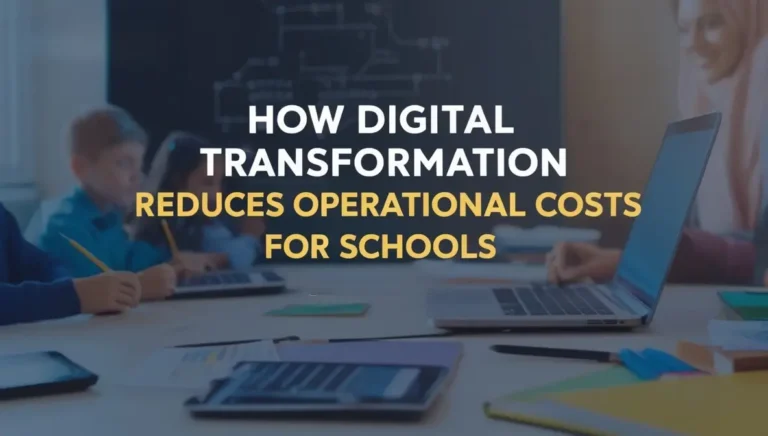
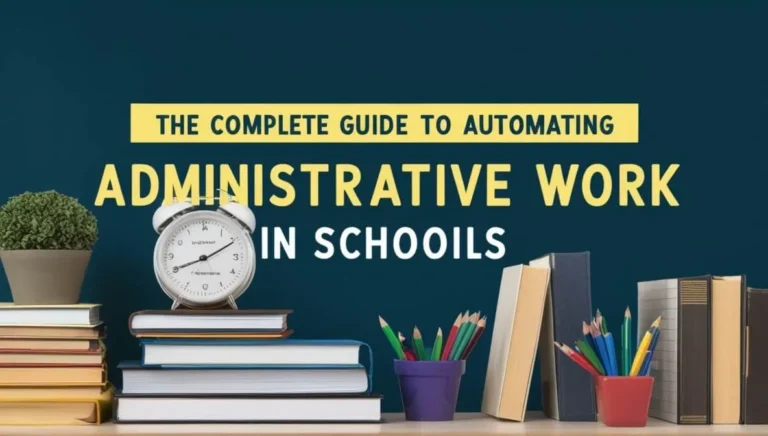
[…] to pivot your presence and stand out in the digital world, don’t miss our detailed guide on How to Take Your Coaching Institute Online and 10X Profits Without Spending on Ads. It walks you through every step—from setup to monetization—helping you reach a wider audience […]
[…] In fact, many coaching institutes have 10X’d their profits by combining automation with strategic online positioning. Learn how in our guide on How to Take Your Coaching Online and 10X Profits Without Ads. […]